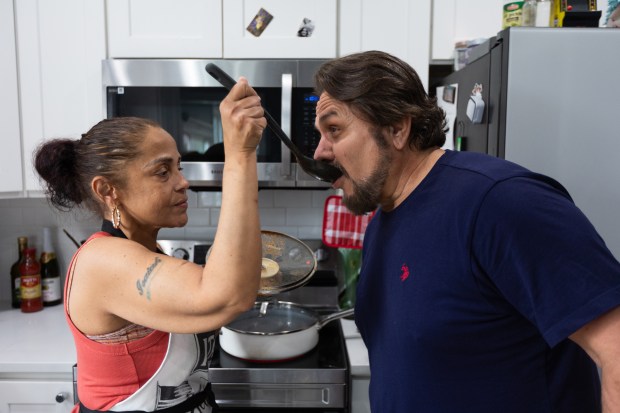A city program that will test automated ticketing of drivers parked in bike and bus lanes downtown, already on the books for nearly a year, could be up and running by summer.
City officials have highlighted the program, called Smart Streets, as a way to improve safety for cyclists and pedestrians downtown and speed up bus service. Officials also at one point highlighted the pilot as a new tool to fill gaps in Mayor Brandon Johnson’s 2024 budget.
The City Council approved the program in March 2023. Tuesday, acting transportation Commissioner Tom Carney told aldermen the agency was “working toward trying to have it stood up by this summer, so that we can then start testing it out and implementation of the pilot.”
Under the pilot program, cameras mounted on poles or city or CTA vehicles can be used to enforce parking violations in bike lanes, bus lanes, crosswalks, bus stops and no-parking zones. The program, which also includes an effort to prevent double parking in commercial loading zones, covers the area roughly between North Avenue to the north, Roosevelt Road to the south, Ashland Avenue to the west and the lake.
Warnings will be sent to drivers instead of tickets for the first 30 days after a camera is installed. The program is set to run through June 30, 2025.
Since the program was approved 11 months ago, CDOT has been working to select technology, equip city vehicles with cameras that can detect violations and test the cameras to ensure they can properly issue fines, Carney and CDOT officials said. The CTA has also been working to install cameras on their buses.
CDOT hopes to have a year of data on the pilot before it reports back to the City Council about the project next year, Carney said later.
As the pilot’s launch approaches, Carney said the complaints he hears about delivery trucks improperly parking have reassured him of its need.
“There’s a problem,” he said. “The pilot will bear out some of the things that I think we’ve all seen.”
The effects of vehicles parked in bike lanes drew heightened attention after 3-year-old Lily Grace Shambrook was killed in a bike crash in Uptown, which is outside the pilot program area. The bicycle she was being carried on was forced to maneuver around a ComEd truck parked in the bike lane, and a semitruck collided with the bike, according to media reports.
Johnson administration budget officials initially pointed to the not-yet-launched program as one new source of revenue that could fill gaps in the 2024 budget. They later clarified they only expected it to bring in $5 million this year.
The city’s use of automated ticketing, including for red light and speed violations, and its fine and fee structure have drawn concerns from critics in recent years. Several investigations found low-income violators have been hit hardest by the city’s ticketing practices, and a 2022 ProPublica investigation found that households in majority Black and Hispanic ZIP codes in Chicago “received tickets at around twice the rate of those in white areas,” despite cameras being roughly evenly distributed across the city.
City officials under former Mayor Lori Lightfoot began efforts aimed at reform, including offering debt relief and restructuring how fines and fees were levied. Lightfoot also instituted a lower threshold for speed camera violations in 2021, and she introduced the Smart Streets ordinance before she left office.
The Smart Streets program also includes provisions for low-income drivers to remain eligible for reduced-price tickets and other debt relief.
CDOT has previously said fines under the program can range from $60 to $250, depending on the violation.




